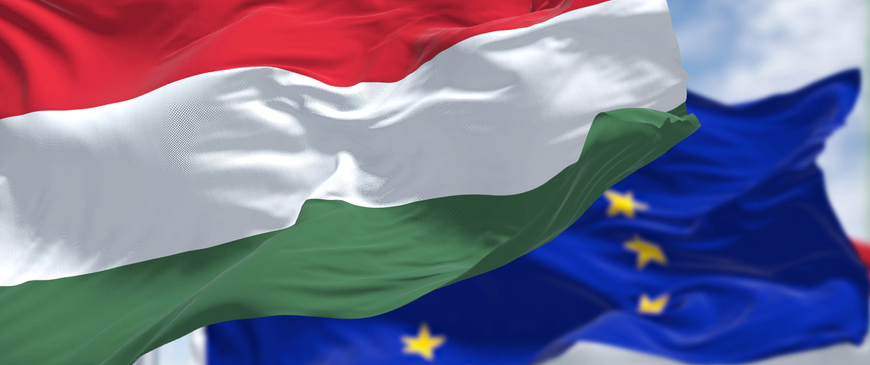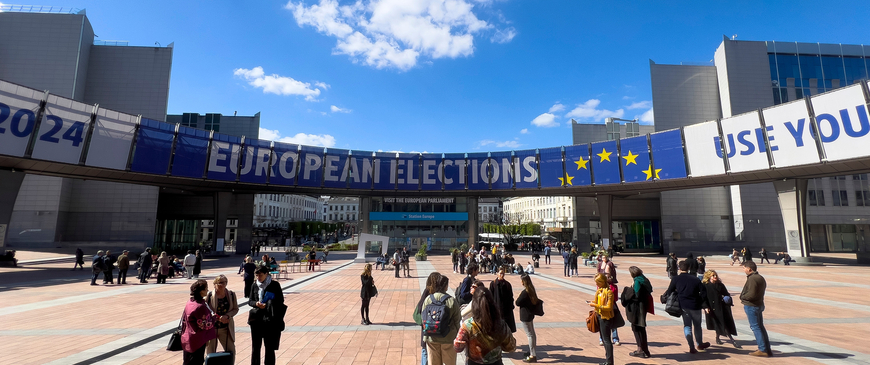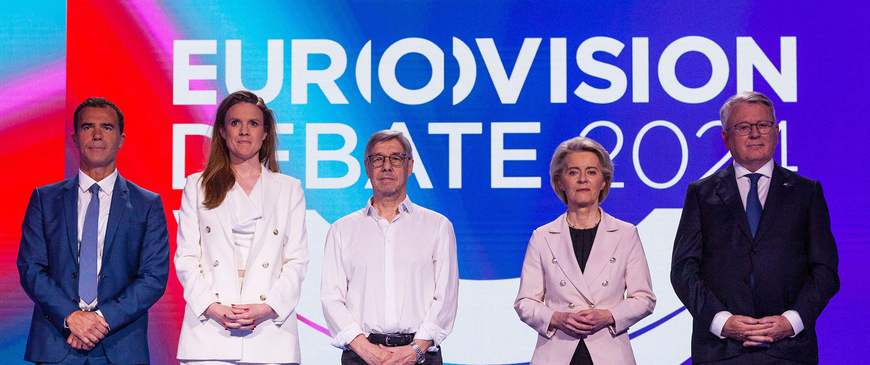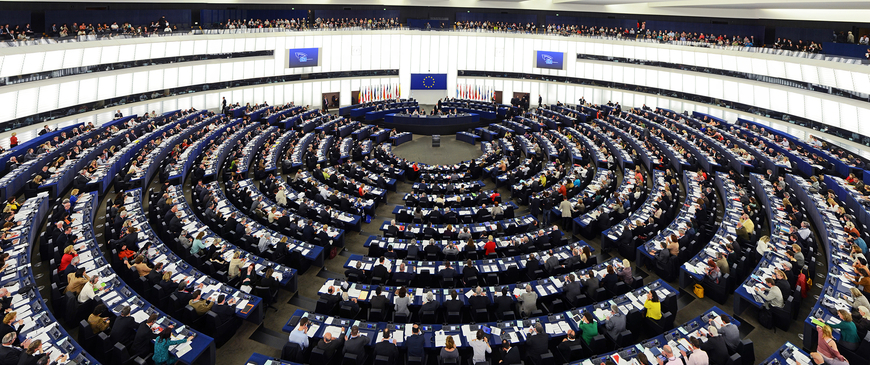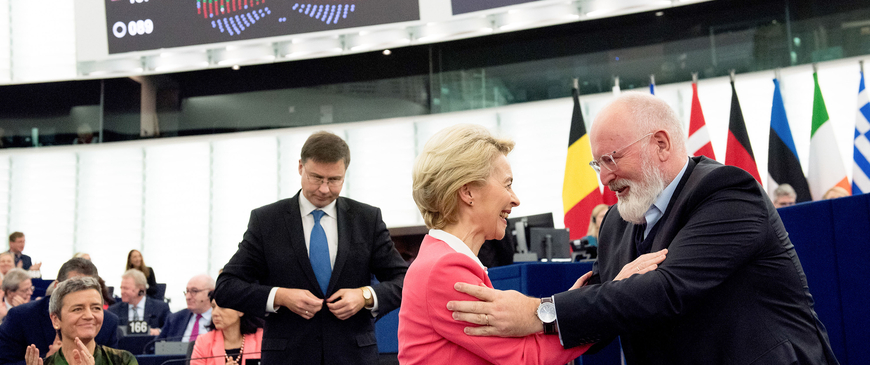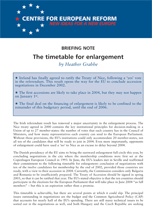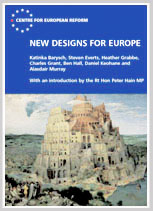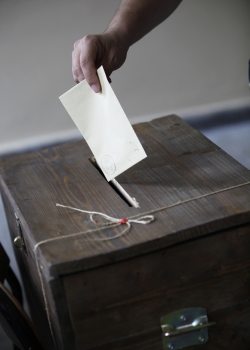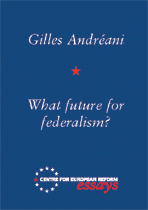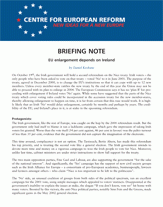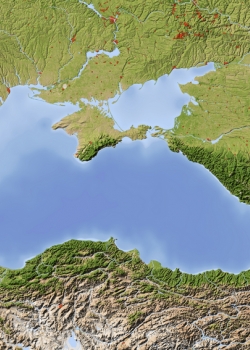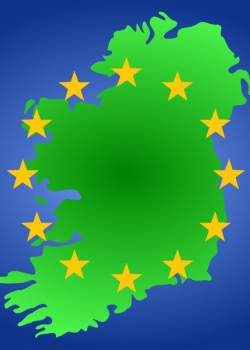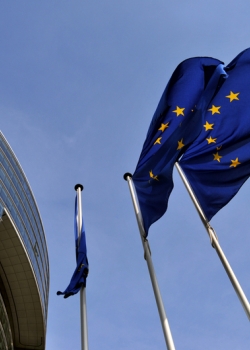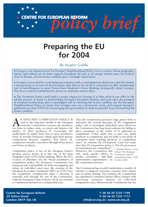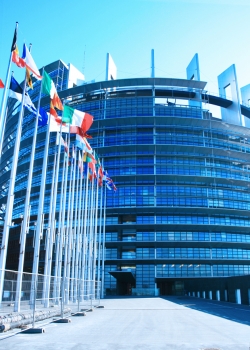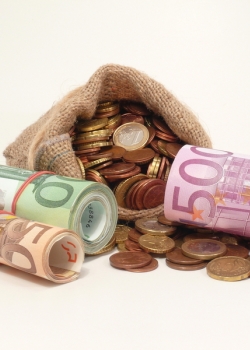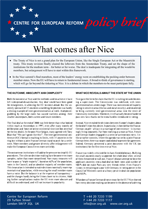EU institutions & treaties
The timetable for enlargement
21 October 2002
The Irish referendum result has removed a major uncertainty in the enlargement process. The Nice treaty agreed in 2000 contains the key institutional principles for decision-making in a Union of up to 27 member-states: the number of votes that each country has in the Council of Ministers, and how many...
New designs for Europe
04 October 2002
Everybody agrees that the EU's institutions are in bad need of reform. In the Convention on the Future of Europe, and elsewhere, a real debate has begun on how Europe should be governed.
The case for a Europe-wide referendum
01 October 2002
It is time for pro-Europeans to face up to the uncomfortable truth that the EU has a serious legitimacy problem. The anti-Europeans' most persuasive claim is that the EU is an elite project over which 'the people' have virtually no influence.
Issue 26 - 2002
27 September 2002
- The case for a Europe-wide referendum , Steven Everts
- EU foreign policy: A necessity, not an option, David Hannay
- Time for Mr ESDP? , Daniel Keohane
What future for federalism?
06 September 2002
In the Convention and elsewhere, Europe is once again debating its institutional framework. Gilles Andréani, in this essay provides a valuable contribution to this debate by analysing the steady rise of 'inter-governmentalism' over the last decade.
EU enlargement depends on Ireland
06 September 2002
On October 19th the Irish government will hold a second referendum on the Nice treaty. Irish voters – the only people who have been asked to vote on that treaty – voted 'No' to it in June 2001. The purpose of the treaty, agreed in December 2000, is to change...
Issue 25 - 2002
26 July 2002
- Don't create Eastern Eurosceptics, Heather Grabbe
- New rules for capital markets, Alasdair Murray
- Reforming the commission , Alasdair Murray
A 'competence catalogue' is code for protectionism
03 June 2002
The European Convention is now in full swing, working on reform options to ensure the EU works better after enlargement. Among the many issues the Convention intends to explore is the question of how better to define the division of 'competences' the right to exercise power between the various levels of government across the EU.
Playing the European game
03 June 2002
Football is the most European, and simultaneously, the most global of sports. The British Empire spread the game throughout Europe, and then worldwide.
Europe's future is in Ireland's hands
03 June 2002
This autumn the newly elected Irish government faces the major challenge of holding a referendum on the Nice treaty. The point of that document, agreed in December 2000, is to change the EU's institutions so that it can cope with up to 12 new members.
Restoring leadership to the European council
01 April 2002
Everybody knows the European Commission is in bad need of reform. The problems in the European Council - the regular summits of heads of government - and the Council of Ministers are less widely known but just as serious, and they contribute to Europe's lack of leadership.
Issue 23 - 2002
29 March 2002
- Restoring leadership to the European council , Charles Grant
- The EU needs a flexible pact , Alasdair Murray
Preparing the EU for 2004
07 December 2001
The debate about the future of Europe is supposed to consider how the Union will function after enlargement. In practice, the agenda set at Laeken addresses longstanding institutional problems, but does not pay sufficient attention to the qualitative changes that enlargement will bring.
Time to abolish the EU's rotating presidency
03 December 2001
The EU performance in foreign policy in the aftermath of September 11th has been underwhelming. European leaders have maintained unity on the substance of policy - a major step forward compared with the situation a decade ago.
Workers are entitled to consultation
01 June 2001
In the last issue of the CER Bulletin, James Wilson argued against the European Commission's proposal for a directive on employee information and consultation. Sadly, in order to do so, he resorted to many of the crude misrepresentations which are common currency among business opponents of the initiative.
We...
We...
An EU senate is superfluous
02 April 2001
The idea that the EU should create a second chamber for the European Parliament, composed of representatives from national parliaments, is a perennial favourite of member-state governments.
The stockholm scorecard
02 April 2001
The Stockholm European Council was supposed to focus on Europe's "new" economy and the goal of creating "the world's most dynamic and competitive knowledge-based economy by 2010".
Issue 17 - 2001
30 March 2001
- The stockholm scorecard, Edward Bannerman
- An EU senate is superfluous, Richard Corbett
- Don't legislate on consultation, James Wilson
What comes after Nice
02 February 2001
Both the outcome at Nice and the methods used to achieve it have left widespread dissatisfaction. Any deal would have been good for enlargement, in allowing the EU to move ahead. But the unseemly spectacle of 15 countries scrambling for position was hardly a shining example of inter-governmentalism at work....
Making Lisbon work in Stockholm
01 February 2001
Even by the standards of the EU's often optimistic policy aspirations, the decade-long economic reform process initiated at the Lisbon summit last March represents an ambitious programme.
The distinctive feature of the Lisbon conclusions is not the pledge of EU leaders to create "the most competitive and dynamic knowledge...
The distinctive feature of the Lisbon conclusions is not the pledge of EU leaders to create "the most competitive and dynamic knowledge...

